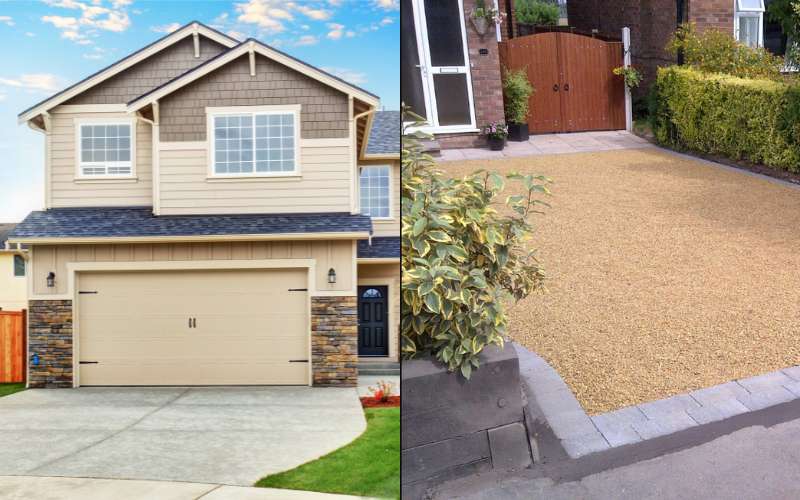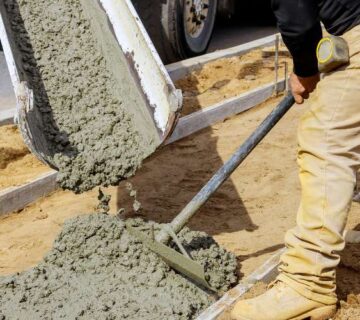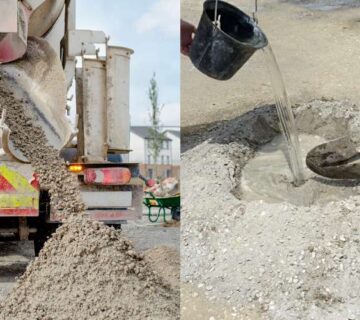Are you considering a new driveway and unsure whether to choose concrete slabs or gravel? You’re not alone. Many homeowners face this decision when looking to boost curb appeal and functionality. Each option offers unique benefits and challenges. For instance, gravel is known for its affordability and rustic look, while concrete slabs provide a sleek, modern feel. In this blog, we’ll dive deep into comparing concrete slabs to gravel for driveways, helping you make the best choice for your home.
Choosing Between Concrete Slabs and Gravel for Your Driveway
When it comes to choosing the right material for your driveway, the decision often comes down to two popular options: concrete slabs and gravel. Both materials have their advantages and drawbacks, depending on your needs, budget, and aesthetic preferences. In this section, we’ll break down the pros and cons of each to help you make an informed choice.
· Durability and Longevity
Concrete slabs are known for their durability and can last up to 30 years or more with proper maintenance. They can withstand heavy loads and resist wear and tear better than gravel. This makes concrete an excellent choice for homeowners who want a low-maintenance and long-lasting solution. However, concrete slabs may develop cracks over time due to weather changes or soil movement. Regular sealing can help minimize this risk.
On the other hand, gravel driveways are not as durable as concrete but can still last up to 10 years with proper care. Gravel can shift and move over time, especially under heavy traffic, which means it requires regular replenishment. However, gravel is less prone to cracking and allows for better drainage, reducing the risk of puddles and ice formation.
· Installation and Cost
Installing a concrete slab driveway is a more involved process. It requires excavation, a sub-base, and the pouring and curing of concrete. This makes it a more expensive option upfront, often costing between $4 to $15 per square foot, depending on the thickness and finish. The higher initial investment is balanced by its longevity and minimal maintenance costs over time.
Gravel driveways are much simpler to install. They require a base layer, a weed barrier, and a top layer of gravel. The installation process is quick and less labor-intensive, making gravel a budget-friendly option at $1 to $3 per square foot. However, it’s important to note that gravel driveways may incur ongoing maintenance costs for replenishing and leveling the gravel.
· Maintenance Requirements
Concrete driveways require relatively little maintenance. To keep them in good condition, you should clean them regularly and seal any cracks that appear. Sealing every two to three years helps maintain the driveway’s appearance and durability. However, removing stains from concrete can be challenging, especially oil or grease stains.
Gravel driveways, on the other hand, require more frequent upkeep. You need to rake the gravel regularly to maintain an even surface and replace lost gravel over time. Weeds can also be a problem, even with a weed barrier, and may require manual removal or the use of herbicides. Despite these maintenance needs, gravel driveways offer an easier fix for any damage—just add more gravel!
· Aesthetic Appeal
A concrete slab driveway offers a clean, modern appearance. It can be customized with various finishes, colors, and patterns to match the aesthetic of your home. This versatility makes concrete slabs an attractive choice for homeowners looking to increase their property’s curb appeal.
Gravel driveways have a more rustic, natural look that suits rural or traditional homes. They come in various colors and sizes, allowing for some level of customization. While they may not have the sleek look of concrete, gravel can provide a charming and inviting feel to any property.
· Environmental Impact
When considering the environmental impact, gravel driveways have a slight edge. Gravel is a natural material that allows water to drain through, reducing runoff and promoting groundwater recharge. This is especially beneficial in areas prone to heavy rainfall. Moreover, gravel production has a lower carbon footprint than concrete.
Concrete, while durable, does have a higher environmental cost. The production of cement, a key ingredient in concrete, releases significant carbon dioxide into the atmosphere. However, the longevity of concrete driveways can offset this impact over time, especially if you choose eco-friendly options like permeable concrete.
· Which Is Right for You?
The choice between a concrete slab and a gravel driveway depends on several factors, including budget, maintenance preferences, and aesthetic desires. If you prioritize durability, low maintenance, and a modern look, concrete slabs are a solid choice. On the other hand, if you prefer a budget-friendly, environmentally friendly option with a natural feel, gravel might be the best option for you.
Make the Right Choice for Your Driveway
Choosing between concrete slabs and gravel for your driveway is a big decision. Whether you prioritize durability, cost, or aesthetic appeal, both options have unique benefits. Contact us today for expert advice and a free quote. Our team is ready to help you find the perfect driveway solution that fits your needs and budget.





No comment